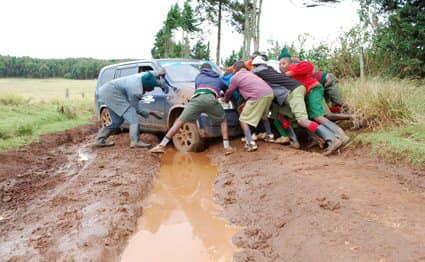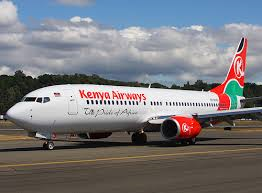
By Ayo Akinfe
(1) Earlier this week, I read another report from Bloomberg lamenting how Nigeria is lagging behind when it comes to taking millions of people out of poverty. Their summary pointed to how China and India were making a huge impact in rural areas and drastically improving the living standards of people who were landless peasants some 10 years ago. It concluded that Nigeria was not part of this process and the future looked bleak as a result

(3) Let us look at the reality of Nigeria as it is today. About half of our population live in rural areas engaged in subsistence agriculture. These people are the backbone of the economy as agriculture is the biggest employer of labour in the country, is the government’s second highest foreign exchange earner after crude oil and gas and is a major contributor to gross domestic product (GDP). No matter what development we see in Lagos or Abuja, millions of people will continue to languish in poverty unless we have an effective rural area policy
(4) In this picture is a typical rural road in Nigeria. It is untarred, links farming villages with major towns, serves as the conduit to get farm produce into urban areas and in the rainy season is virtually impassable. Under the provisions of Nigeria’s constitution the maintenance of the road is the responsibility of local government
(5) Where we have a big problem is that almost all of our state governors do not allow local governments have access to their funds as allocated to them under the current federal allocation formula. How can a local government chairman fix rural roads when he does not even have a budget?
(6) Since independence, what we have seen is state governors focusing maybe about half of their revenue on their capitals. As the creation of states has accelerated, what we have seen is that the further you move away from the capital, the less development you see. The one exception to this is that the governor’s home town tends to get a lot of attention. For example, Ambrose Alli located a university in Ekpoma, Bisi Onabanjo located a university at Ago-Iwoye, James Ibori located the Delta State Teaching Hospital at Oghara and Akinwunmi Ambode gave Epe a major facelift
(7) This reality that governors only develop the state capital and their home towns is what fuels this “It is our turn” mentality in Nigerian politics. Communities know that they will suffer neglect until they produce a governor, hence why they fight tooth and nail to get “one of theirs” into office
(8) Today, if you go to any state capital, you will see fountains in the city centre, dual carriageways linking Government House with the main motorway linking the metropolis to the outside world and the tarring of some adjacent roads. In some cases, you will even see flyovers but we must ask ourselves if this is really what the doctor ordered. How many people will this renovation of the city centre lift out of poverty?
(9) Rural roads that link farms with local government headquarters are the lifeblood of Nigeria and need to be given urgent priority with a Local Government Rehabilitation Act. Nigeria is the world’s sixth largest farms goods producer but about one third of our output goes to waste because of poor transportation, storage and refrigeration facilities. Just imagine how many tomatoes get squashed when the lorry carrying them gets stuck in the mud in the rainy season or runs into a huge pothole in the middle of nowhere. By the time the lorry is pulled out, half of its tomatoes, peppers, papaya, mangoes or oranges are squashed
(10) Until we can successfully get our poor peasants off the land and into factories, rural roads have to take priority in infrastructural development plans. In the US for instance, only 2% of the population is involved in agriculture compared with 50% in Nigeria, yet their agricultural output is higher than ours. Over the long term, we need to reduce the number of people involved in farming so we can mechanise agriculture, resort to commercial farming and end this scourge of subsistence agriculture which breeds poverty. While we have that as the goal, in the meantime, rural roads have got to take priority over flashy urban flyovers
— with Bola Sal,Princess Hani Omolabake Tepede, Keni Fad and 42 others.



